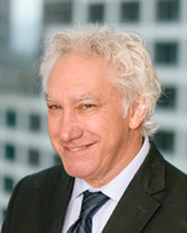Large Balloons Over America, Small Molecules In China

By Louis Garguilo, Chief Editor, Outsourced Pharma

Coinciding with U.S. and China relations continuing to deflate, and with no premeditated intention, my discussion with President and CEO of Kintara Therapeutics, Robert E. Hoffman, and CSO (and a co-founder) Dennis Brown, focused quite a bit on the role of China-based CDMOs for Western-based drug developers.
My assumed role in the discussion was as antagonist, not specifically towards outsourcing to these organizations, but regarding geopolitical calculus.
Messrs. Hoffman and Brown confronted this openly and with equanimity. They led me through an analysis of the historic relationship between U.S.-based biotechs (start-ups particularly) and the seemingly ever-verdant CDMO landscape in China.
Despite the prevailing winds between the two countries, if you are a drug developer in the U.S., China remains starred on the map of outsourcing options.
A Narrowing Field

VAL-083 (a 'first-in-class', small-molecule chemotherapeutic) is currently advancing in the Global Coalition for Adaptive Research registrational Phase 2/3 clinical trial for newly diagnosed and recurrent grade IV glioblastoma (GBM). VAL-083 received FDA Orphan Drug Designation in December 2022 for the treatment of diffuse intrinsic pontine glioma, a rare and highly aggressive childhood brain cancer.

Kintara contracted early for manufacturing of API and finished drug product for VAL-083 with China’s Guangxi Wuzhou Pharmaceutical Company (Wuzhou).
This was not a decision taken lightly. It was arrived at with more than a light push by outsourcing market dynamics.
To begin with, says Hoffman, “securing manufacturing early is extremely important.” His experience is informed by experiences, including at Arena Pharmaceuticals, and as a member of various biotech boards.
“If you fast forward, it always seems when drug developers get a CRL [FDA Complete Response Letter], it's around CMC concerns. Manufacturing always seems to trip up companies.”
As for Brown, his experience spans three decades of SM discovery and development, and goes back to the molecule itself.
“There’s a long history to VAL-083,” he says. “It's not unique in the sense of the flow of how we got to where we are. However, cancer molecules have specific challenges. We have a cytostatic cytotoxic API. It's not a complicated molecule, but it had some synthetic challenges we got solved with our vendors.”
“We also have a lyophilization requirement. The number of people willing to do lyophilization for smaller quantities in the U.S. is limited, and to get on their calendar you put money down and then sit on your hands for months. It's tough.”
Options are available offshore. Nonetheless, Brown adds, “you must do all your due diligence. For example, the CDMO needs a clear understanding of safety related to exposure to the personnel doing the work.”
How one gains confidence in the far-off CDMO, he says (and we’ll revisit in part two), can be through the assistance of “brokers,” like those who introduced Kintara to CDMOs in China.
International Assistance
“We have to go around the world to get help,” says Brown. “We've done that with different vendors at different points in time, despite our small size. The vendors for cytotoxic or cytostatic agents are not as common as they were a few decades ago.”
He continues:
“There once was a well-defined, U.S.-organizational structure, mostly because of the National Cancer Institute (NCI), where we had companies like Ash Stevens [acquired by Piramal] to make API, and Ben Venue [acquired by Hikma] for fill-and-finish applications here.
“Now, almost all companies available to us are offshore. Either that or I've seen the trend where U.S. firms have subsidiaries and relationships in India and China.
“For example, we would do animal toxicology work in the United States, and although they were firms in business for many years, suddenly they had an arm to do the work in China.”
Therefore, my objections to the Communist China Party and other not-so-pro protestations to Brown, he says China remains common ground to get new drugs to patients.
Change In The Air
And yet … I often talk to professionals at companies Kintara’s size; they feel too small (or too virtual) to manage a China-based relationship – they simply don’t have the resources to get on planes to audit or monitor what’s going on at their partners. The supply chain is overly elongated.
Others, like a CEO a spoke with recently, do say, “We're not in China anymore, and we don’t want to be in China, for a host of reasons – including geopolitical. There are too many circling risks.”
And Hoffman remains outsourcing-market and program-needs driven.
He says that moving into Kintara’s registrational study [via the Global Coalition for Adaptive Research], it became clear the company needed a different manufacturing approach, even though Wuzhou has worldwide manufacturing rights.
“In fact we utilized different suppliers for that material,” says Hoffman.
“We needed commercial-grade material, and selected different suppliers, including STA Pharmaceutical [an Wuxi AppTech company] in Shanghia for drug substance, and Kelix Bio in Malta for drug product, which were better suited.”
Hoffman explains Kintara is in “early-stage partnering discussions” on both his programs, and says, “Yes, there is concern from some potential pharmaceutical partners about the China manufacturing-rights relationship.”
“So it's kind of bearing out what you're saying. There is a level of skepticism.”
“I'm always trying to triangulate to understand exactly what that skepticism is, because I hear different narratives, whether it's trusting the data, the IP around it, or other points of wider concern,” Hoffman explains.
“At the same time, there are different levels of companies in China. Overall, if it’s a Wuzhou or WuXi, people feel differently than some other companies nobody’s really heard of.”
And as Brown has said above, no matter where you go or what your size, you must do the QA/QC and all the due diligence before selecting a vendor, and a location. And yes, outside factors like geopolitics can matter.
We’ll talk a bit more about that next, and receive quite a history lesson in small-molecule development in the U.S.
